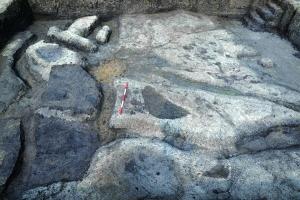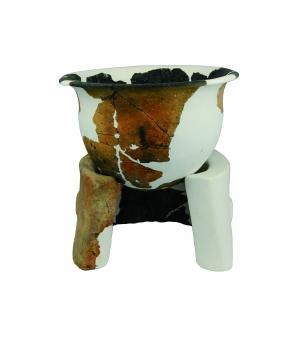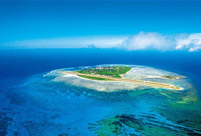



NANJING, May 6 -- Chinese archaeologists said they have found a paddy dating back more than 8,000 years, which could be the earliest wet rice farming site in the world.
The field, covering less than 100 square meters, was discovered at the neolithic ruins of Hanjing in Sihong County in east China's Jiangsu Province in November 2015, according to a spokesman with the archeology institute of Nanjing Museum.
At a seminar held in late April to discuss findings at the Hanjing ruins, more than 70 scholars from universities, archeology institutes and museums across the country concluded that the wet rice field was the oldest ever discovered.
Researchers with the institute found that the paddy was divided into parts with different shapes, each covering less than 10 square meters.
They also found carbonized rice that was confirmed to have grown more than 8,000 years ago based on carbon dating, as well as evidence that the soil was repeatedly planted with rice.
Lin Liugen, head of the institute, said Chinese people started to cultivate rice about 10,000 years ago and carbonized rice of the age has been found, but paddy remnants are quite rare.
Lin said the findings would be significant for research on the origin of rice farming in China.
 Beijing Style: ready for bare legs
Beijing Style: ready for bare legs Century-old station sees railyway evolution
Century-old station sees railyway evolution Amazing scenery of Xisha Islands
Amazing scenery of Xisha Islands Enthusiasts perform Kung Fu at Wudang Mountain
Enthusiasts perform Kung Fu at Wudang Mountain Stunning photos of China's fighter jets in drill
Stunning photos of China's fighter jets in drill Monk's mummified body to be made into a gold Buddha statue
Monk's mummified body to be made into a gold Buddha statue Asia's longest and highest suspension bridge to open to traffic
Asia's longest and highest suspension bridge to open to traffic China's first interactive robot looks like a beauty
China's first interactive robot looks like a beauty Vietnamese Su-30 fighters fly over Nanwei Island in South China Sea
Vietnamese Su-30 fighters fly over Nanwei Island in South China Sea Top 20 hottest women in the world in 2014
Top 20 hottest women in the world in 2014 Top 10 hardest languages to learn
Top 10 hardest languages to learn 10 Chinese female stars with most beautiful faces
10 Chinese female stars with most beautiful faces China’s Top 10 Unique Bridges, Highways and Roads
China’s Top 10 Unique Bridges, Highways and Roads Unpredictable Trump could swing either way on China
Unpredictable Trump could swing either way on China Military institution scandal highlights shady Putianese private clinics
Military institution scandal highlights shady Putianese private clinics How to maintain property in communist system looms large as land warrants expire
How to maintain property in communist system looms large as land warrants expire Yiwu, China’s wholesale capital, switches its economic growth engine from manufacturing to design
Yiwu, China’s wholesale capital, switches its economic growth engine from manufacturing to designDay|Week